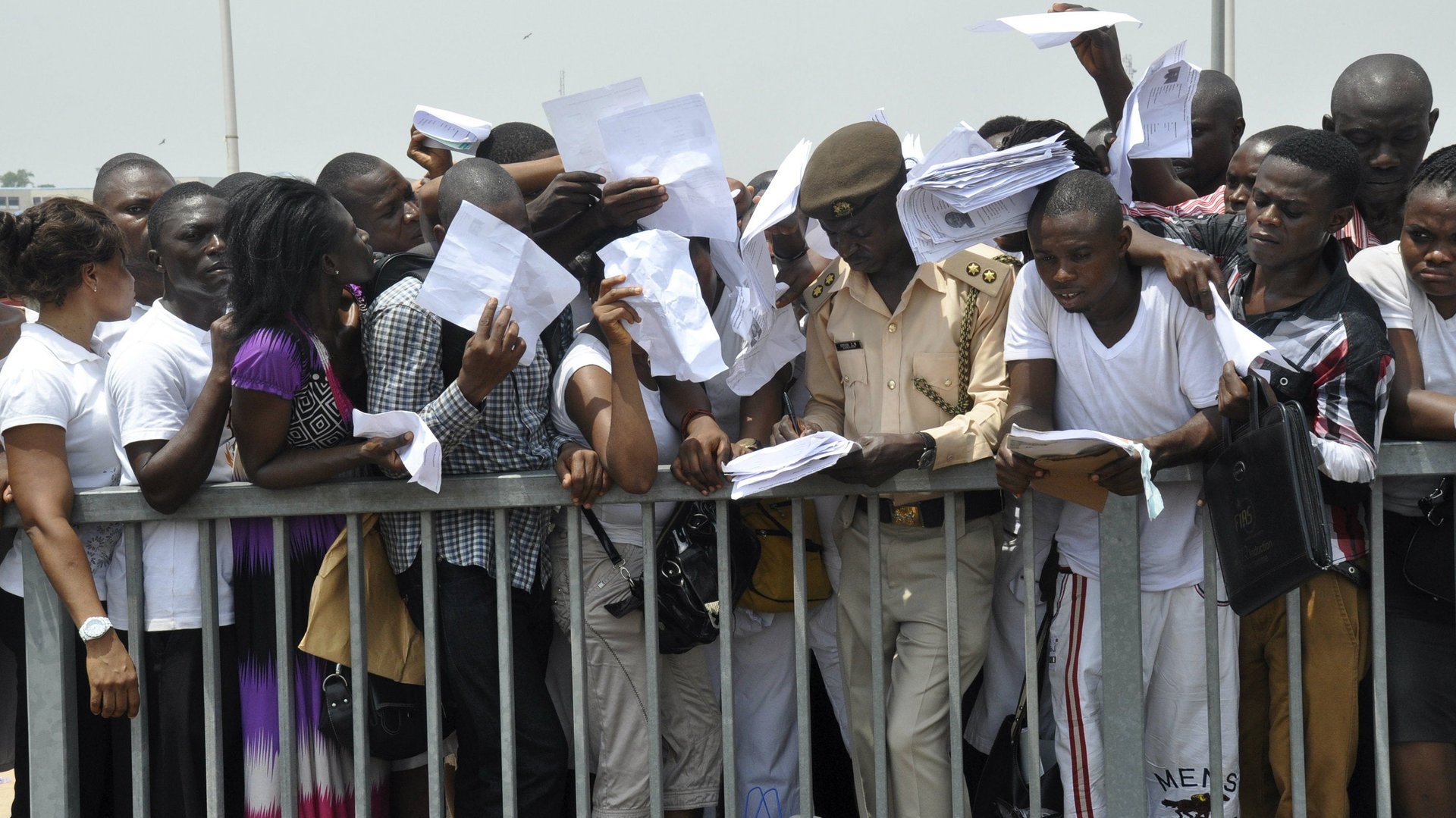The terrible odds stacked against young people trying to get jobs in Nigeria
With Nigeria’s economy, the largest in Africa, mired in its first recession in decades, unemployment figures have steadily climbed and data from Nigeria’s bureau of statistics paints a grim picture.


With Nigeria’s economy, the largest in Africa, mired in its first recession in decades, unemployment figures have steadily climbed and data from Nigeria’s bureau of statistics paints a grim picture.
But a recent recruitment drive by, FIRS, Nigeria’s federal tax agency is helping put the scale of the problem in context. Tunde Fowler, FIRS boss, says the agency received 700,000 applications (2,000 were by graduates with first class honors degrees) for only 500 advertised positions. With federal agencies strapped for cash, Fowler says FIRS cannot employ any more workers than it can manage.
In the past, recruitment exercises for Nigeria’s civil service have attracted thousands of applicants but not on this scale. In 2014, during one of the worst recruitment drives in recent history, 16 young people died in stampedes as 125,000 job seekers applied for 4,500 jobs with Nigeria’s immigration service.
While that was considered a national tragedy, the number of applications has markedly increased. Back in February, the Nigerian Police Force said it received almost a million applications for 10,000 listed positions. In the process of applying for jobs which they have slim chances of getting, job seekers also face the risk of getting duped by fake agencies and online portals.
Throughout the year, companies across the country have shed staff, or closed down citing economic challenges. For its part, the government claims it is trying to solve the problem with policies to trigger growth and create jobs. It has also sought to recruit half a million unemployed Nigerians into teaching positions.
But not all of the government’s tactics have been conventional. In June, amid an industry-wide retrenchment exercise, it ordered banks to stop sacking workers and threatened to withdraw licenses of those who flouted its order.